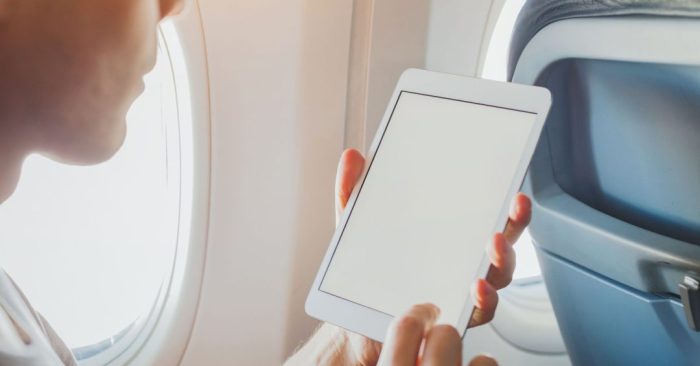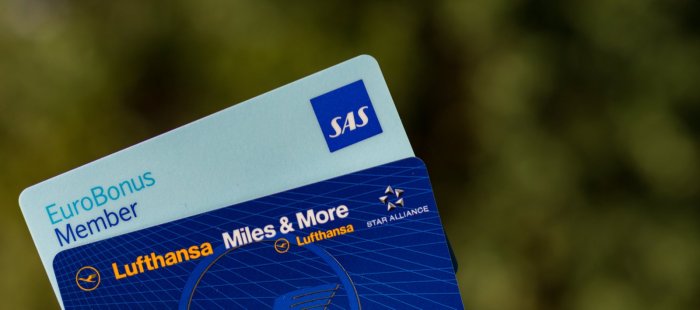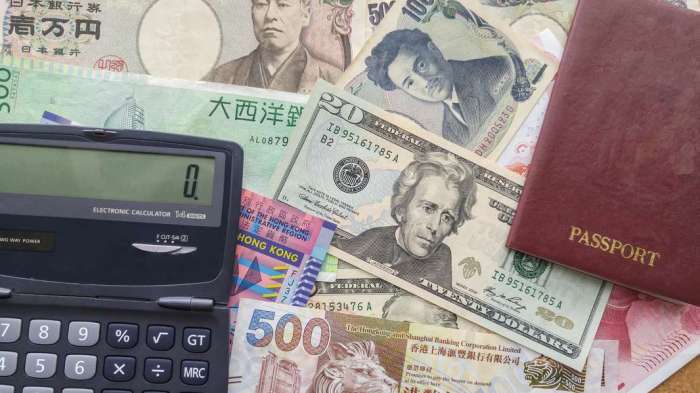Airline ticket hacks unlock a world of savings, empowering travelers to snag incredible deals on flights. This comprehensive guide delves into proven techniques, from identifying legitimate deals to mastering booking strategies, analyzing travel dates, and leveraging rewards programs. Uncover the secrets to scoring the best possible airfare, avoiding scams, and maximizing your travel budget.
We’ll explore a variety of strategies, from using price comparison tools and flight aggregators to understanding airline policies and maximizing travel rewards. Learn how to navigate the complexities of the travel industry and uncover hidden opportunities for significant savings. Prepare to revolutionize your travel planning and experience the thrill of affordable adventures.
Identifying Ticket Hacking Techniques

Source: huffingtonpost.com
Savvy travelers constantly seek ways to secure affordable airfare. Understanding the intricacies of airline ticket pricing and the tactics employed by both legitimate deal-finders and fraudulent actors is crucial for navigating this complex landscape. This involves distinguishing between legitimate strategies and potential scams, ensuring a positive travel experience.Airline ticket prices are influenced by a multitude of factors, including demand, seasonality, and airline competition.
Identifying these patterns allows travelers to find deals, while recognizing the common methods used by those seeking to exploit the system is vital for protecting against fraud. Comprehending the differences between legitimate strategies and fraudulent schemes is paramount for a successful and safe travel experience.
Common Methods for Finding Cheap Airline Tickets
Various methods can help secure discounted airfare. Price comparison tools, flight aggregators, and utilizing airline websites directly are common approaches. Each technique has its advantages and disadvantages, impacting the overall travel experience.
- Price Comparison Tools: These platforms aggregate prices from multiple airlines and travel agencies, enabling users to quickly compare options. They often provide filters to narrow down search results, allowing for focused exploration of different routes and schedules. Price comparison tools are beneficial for identifying potential savings, but users should be aware of potential hidden fees and commissions that may affect the displayed prices.
- Flight Aggregators: These websites act as a central hub, collecting and displaying flight information from various sources. This approach simplifies the search process and provides a broader view of available options. Users benefit from a comprehensive overview of flight choices, but it’s important to scrutinize the aggregator’s fees and commission structures.
- Airline Websites: Directly visiting the airline’s website can sometimes yield better deals. These websites frequently feature exclusive offers and promotions. While this method often requires more time for research, users can potentially avoid third-party commissions, potentially resulting in lower prices.
Legitimate Deals vs. Fraudulent Schemes
Distinguishing between legitimate deals and fraudulent schemes is crucial. Legitimate deals often involve discounts, promotional offers, or sales by airlines and travel agencies. In contrast, fraudulent schemes can manifest as fake ticket sales or misleading advertisements.
- Legitimate Deals: These typically involve discounts offered directly by airlines or travel agencies, such as promotional fares, loyalty program discounts, or seasonal sales. These deals are backed by verifiable sources and are not associated with deceitful tactics.
- Fraudulent Schemes: These are characterized by offers that seem too good to be true. They often involve fake websites, unrealistic prices, or vague details about the airline or travel agency involved. These schemes often target travelers’ desire for low fares.
Spotting Potential Airline Ticket Scams
Several warning signs can help travelers identify potential scams. Look for unusual offers, inconsistencies in pricing, or suspicious websites.
- Unusual Offers: Deals that seem excessively low or too good to be true should be approached with caution. Consider the potential for hidden costs or fraudulent practices.
- Inconsistent Pricing: Significant discrepancies in pricing across different platforms or websites should raise concerns. Discrepancies may point to inflated prices or fraudulent offers.
- Suspicious Websites: Websites with poor design, unclear contact information, or suspicious domain names are potential red flags. Look for verified information, secure payment methods, and reputable endorsements before proceeding.
Comparing Ticket Hacking Strategies
| Method | Description | Pros | Cons |
|---|---|---|---|
| Price Comparison Tools | Aggregate prices from multiple sources. | Wide selection, quick comparisons. | May not include all offers, potential for hidden fees. |
| Flight Aggregators | Centralized platform for flight information. | Comprehensive overview, simplified search. | Potential for inflated prices or misleading offers. |
| Airline Websites | Direct access to airline deals. | Potential for exclusive offers, avoids third-party fees. | Requires more research, may miss other options. |
Exploring Booking Strategies
Airline ticket prices fluctuate dramatically, making strategic booking a crucial element in saving money. Understanding the dynamics of pricing and employing advanced booking techniques can yield significant savings. This exploration delves into various booking strategies, from leveraging platform differences to optimizing timing.Savvy travelers can significantly reduce their airfare expenses by recognizing patterns and trends in the market. Different booking platforms often offer varying pricing structures, and the most cost-effective choice can depend on specific circumstances.
Analyzing the benefits and drawbacks of each platform is essential for achieving the best possible deal. Furthermore, understanding the impact of booking time on fares is critical for making informed decisions.
Booking Strategies for Discounted Prices
Various tactics can help travelers secure lower fares. These strategies range from taking advantage of flexible travel dates to utilizing specific booking tools and platforms. Airlines frequently offer discounted fares through promotional campaigns or partner deals, and understanding these opportunities is vital for maximizing savings.
Advanced Booking Techniques
Advanced booking techniques often involve a blend of flexibility and foresight. One key element is identifying potential price drops or discounts, often achieved by monitoring prices and using tools that alert you to changes. A sophisticated approach involves analyzing past pricing trends for specific routes, understanding how different travel dates impact prices, and identifying optimal booking windows. Furthermore, recognizing and leveraging the nuances of different travel platforms, such as airline websites, metasearch engines, and travel agencies, can yield significant savings.
Benefits and Drawbacks of Booking Platforms
Different booking platforms cater to various traveler needs. For example, dedicated airline websites offer direct access to fare information and potential loyalty program benefits. However, these websites may not always provide the most comprehensive view of available fares. Metasearch engines, in contrast, aggregate pricing from multiple sources, providing a broader comparison. This broader view can be advantageous, but it can also be time-consuming to navigate.
Online travel agencies (OTAs) often provide a convenient one-stop shop for booking flights, accommodations, and rental cars. However, they may not always provide the lowest prices compared to booking directly with airlines.
Impact of Booking Time on Fares, Airline ticket hacks
The time of year you book significantly impacts airline ticket prices. The demand for travel varies seasonally, impacting the pricing structure.
| Booking Time | Pros | Cons |
|---|---|---|
| Example Time 1 (Off-peak season, shoulder months) | Potentially lower prices compared to peak season, greater availability of flights and seats. | Less flexibility in travel dates, potentially fewer flight options depending on the route and time of day. |
| Example Time 2 (Peak season, holiday periods) | May provide greater flexibility in travel dates, more flight options. | Higher prices compared to off-peak season, limited seat availability. |
Understanding Airline Policies
Navigating the intricate world of airline tickets often requires a keen understanding of the terms and conditions. Airline policies, often buried within dense legalese, can significantly impact the cost and flexibility of a trip. Understanding these policies is crucial for savvy travelers aiming to maximize value and avoid costly surprises.Airline policies encompass a broad spectrum of rules, from baggage allowances to cancellation fees.
These policies vary widely between airlines and even within different fare classes. Unforeseen circumstances can lead to significant financial burdens if not proactively addressed.
Unlocking the secrets of airline ticket hacks can be incredibly rewarding, especially when you’re looking to maximize your travel potential. Strategies like booking in advance and utilizing flexible dates often yield significant savings. For those seeking truly epic journeys, exploring the intricacies of “sta round the world” itineraries, such as those available at sta round the world , can be a fantastic way to leverage these hacks for global adventures.
Combining these hacks with careful planning can lead to truly unforgettable travel experiences.
Airline Ticket Deal Terms and Conditions
Airline ticket deals, while attractive, frequently come with stipulations. Understanding these terms is paramount for securing the best possible value. These stipulations often cover fare restrictions, such as blackout dates, minimum stay requirements, or restrictions on connecting flights. The fine print usually Artikels the implications of altering the booking. A thorough review is vital to avoid unexpected costs or limitations.
Hidden Fees and Charges
Hidden fees and charges are a significant consideration when evaluating airline tickets. These can include baggage fees, seat selection charges, or even change fees. Many travelers overlook these additional costs, leading to a higher-than-expected final price. Careful scrutiny of the total cost, including all fees, is essential for budget-conscious travelers.
Avoiding Common Pitfalls
Common pitfalls in airline policies include overlooking cancellation and refund rules. Failing to understand these policies can result in significant financial losses. Thorough examination of the fine print before finalizing a booking is crucial. Booking with flexible options can help mitigate potential risks and offer more flexibility.
Unlocking the secrets to savvy airfare is key to maximizing your travel budget. Savvy travelers often leverage various “airline ticket hacks” to secure the best deals. For example, exploring different booking strategies and understanding the nuances of flexible travel options is crucial. A well-researched understanding of Travel trends can provide further insight into securing better deals and avoiding common pitfalls in the process.
Ultimately, these hacks can significantly impact the overall travel experience.
Table of Common Airline Ticket Policies
| Policy | Description | Example |
|---|---|---|
| Cancellation Policy | Artikels the conditions and fees associated with canceling a ticket. | A non-refundable ticket may not allow for cancellations or modifications, incurring a full fare loss. |
| Refund Policy | Specifies the terms for obtaining a refund if a ticket is canceled. | A refundable ticket allows for a full refund under certain circumstances, such as within a specific timeframe before departure. |
| Change Fees | Details the costs associated with modifying booking details. | Altering flight dates or destinations may incur change fees, which can vary significantly based on the airline and the fare type. |
| Baggage Fees | Artikels charges for checked or carry-on baggage exceeding the airline’s allowance. | Airlines often impose fees for checked baggage exceeding the free allowance. |
| Seat Selection Fees | Describes charges for selecting specific seats, often higher for preferred seats or premium classes. | Upgrading to a premium seat or selecting specific rows, like those near the emergency exits, may incur additional fees. |
Analyzing Travel Dates and Destinations
Unlocking the secrets to discounted airfare often hinges on strategic travel planning. Understanding the dynamics between travel dates and destinations is crucial for maximizing savings. Airlines and travel agencies often adjust pricing based on demand, seasonal trends, and specific events. This analysis will delve into the key factors to consider when identifying optimal travel times and destinations for the most affordable airfare.Travelers often overlook the profound impact of flexible travel dates on ticket prices.
Real-world examples illustrate how shifting departure and return dates by even a few days can dramatically alter the final cost. Understanding these patterns empowers travelers to make informed decisions and secure the best possible deals.
Identifying Optimal Travel Times
Travel demand fluctuates throughout the year, creating predictable patterns in airfare pricing. Peak seasons, like holidays and summer vacations, typically command higher prices due to increased demand. Conversely, the off-season, including shoulder seasons (periods between peak and off-peak), often offers significantly lower fares. This allows travelers to find opportunities for savings by choosing dates outside the most popular travel periods.
Examples of Budget-Friendly Destinations
Certain destinations naturally attract lower fares than others. This often correlates with factors like lesser demand or fewer direct flights. Analyzing destinations with lower average prices can help travelers optimize their travel budgets. For example, destinations in less populated regions or those experiencing a period of reduced tourism often feature more affordable airfare.
Impact of Flexible Travel Dates on Ticket Prices
The flexibility of travel dates plays a significant role in airfare prices. Flights booked during peak periods typically cost more. Conversely, traveling during the off-season often leads to significant savings. Even slight adjustments in travel dates can make a noticeable difference in ticket costs. A quick search for flights on various dates can uncover substantial savings.
Unlocking hidden deals in the airline ticket market often involves savvy strategies. Savvy travelers are constantly searching for the best possible deals, and one popular approach involves exploring specialized resources like hacker fare flights to unearth hidden discounts and unexpected bargains. This can significantly reduce the cost of air travel, making the experience more accessible and affordable for many.
Tips for Finding Affordable Destinations
Discovering budget-friendly destinations involves a multi-faceted approach. A combination of research, comparison, and flexibility is key. This section provides a structured approach to finding affordable travel destinations.
- Monitor price fluctuations: Utilize flight comparison websites to track fare changes over time. This allows you to identify the most affordable options by comparing prices on different dates.
- Explore alternative airports: Consider flying into or out of airports that are not the most prominent or centrally located options in a region. This can often lead to lower fares.
- Be adaptable: Flexibility with travel dates is crucial. Consider traveling a day or two earlier or later than your preferred dates to potentially save money.
- Consider travel outside of major holidays: Avoid traveling during major holidays and peak seasons to potentially reduce costs. Travel during shoulder seasons can often provide attractive deals.
- Compare multiple flight options: Use different flight comparison websites and airline websites to find the best possible prices. This ensures that you are getting the most competitive offers.
Utilizing Travel Rewards Programs

Source: theplaidzebra.com
Unlocking significant savings on airfare often hinges on strategic utilization of travel rewards programs. These programs offer a powerful tool for maximizing value and potentially securing discounted flights, thereby reducing the overall cost of travel. Understanding the nuances of these programs and their associated benefits is crucial for savvy travelers.Effective participation in travel rewards programs requires a discerning approach.
Choosing the right program aligns with individual travel patterns and preferences, while leveraging specific features like bonus points, accelerated earning rates, and flexible redemption options. This deliberate selection allows for targeted accumulation of rewards and efficient exchange for travel benefits.
Reward Program Selection Strategies
Maximizing the value of travel rewards programs necessitates careful consideration of various factors. Understanding the specific terms and conditions of different programs is paramount to informed decision-making. Factors like earning rates, redemption flexibility, and program tiers influence the ultimate value proposition. Programs often cater to specific demographics, preferences, and spending habits, making the right choice a crucial element in realizing the maximum benefit.
Comparing Travel Rewards Programs
A comprehensive evaluation of available travel rewards programs requires a structured approach. A comparative analysis of key aspects, such as earning potential and redemption options, facilitates informed decisions. This comparison allows travelers to identify programs that align with their individual travel patterns and spending habits.
| Program | Earning Potential | Redemption Options |
|---|---|---|
| Airline A Rewards | Earn points based on spending on flights, hotels, and other purchases; tiered bonus programs available. | Redeem points for flights, hotel stays, and merchandise; flexible redemption periods. |
| Airline B Miles | Earn miles through flights, partner purchases, and credit card spending; various earning tiers. | Redeem miles for flights, upgrades, and other travel-related services; options for transferring miles to other partners. |
| Travel Credit Card Program C | Earn points or miles through credit card spending; potentially higher earning rates on travel-related purchases. | Redeem points for flights, hotel stays, and other travel-related purchases; often includes bonus travel benefits and perks. |
Note: Earning potential and redemption options can vary significantly between programs and are subject to change. Always review the terms and conditions of each program before making a decision.
Example Program Details
Understanding the mechanics of specific programs is crucial. Consider Airline A Rewards, a program that allows users to accumulate points based on various activities, like flights and purchases. This program offers diverse redemption options, including flight tickets and hotel accommodations. Such detailed knowledge enables informed decisions and maximizes the potential benefits.
Analyzing Ticket Hacking Tools and Resources
Navigating the labyrinthine world of airline ticket prices requires the right tools and strategies. This section delves into the practical applications of various resources, from specialized websites to sophisticated browser extensions, enabling savvy travelers to uncover hidden bargains and optimize their travel budgets. The key lies in understanding the intricacies of these tools and utilizing them effectively to achieve maximum value.
Reliable Websites and Apps for Finding Cheap Flights
Identifying reputable sources for flight deals is crucial for maximizing savings. A multitude of websites and applications are designed to scan the market for the most competitive fares, allowing users to filter by destination, dates, and other preferences. These platforms aggregate data from multiple airlines and travel agencies, enabling users to compare prices in a single interface. Some popular choices often prove valuable for users looking for deals, often offering a wider range of flight options than individual airline websites.
Browser Extensions for Tracking Flight Prices
Utilizing browser extensions provides a proactive approach to identifying potential flight deals. These extensions, often free and readily available, are integrated into web browsers and automatically monitor changes in flight prices. By setting price alerts, users are notified immediately when fares drop below a specified threshold, enabling them to act quickly and secure a favorable booking. This real-time monitoring can significantly increase the chances of securing affordable tickets.
Effective Use of Price Comparison Tools
Price comparison tools play a critical role in the search for optimal flight deals. These tools function as a central hub for comparing prices across various airlines and travel agencies. Users input their desired travel parameters, and the tool aggregates results, displaying a comprehensive overview of available options. A deep understanding of these tools and their capabilities allows travelers to identify and select the most affordable fares.
Unlocking airline ticket deals can be a game-changer, but maximizing your travel budget often requires careful planning. To truly stretch your travel dollars, consider exploring backpacking trails near me, like those highlighted in this comprehensive guide: backpacking trails near me. This can provide an affordable alternative or a perfect addition to your airfare-savvy adventures. Savvy travelers can then combine these savings with savvy airfare strategies to make the most of their journey.
The results are often displayed in a clear and user-friendly format, allowing for easy comparison and selection.
Resources for Staying Updated on Deals and Discounts
Staying abreast of the latest deals and discounts is essential for securing the best possible flight prices. Dedicated travel blogs, newsletters, and social media accounts can provide valuable insights into emerging promotions. These resources often provide detailed information about specific airline deals, allowing travelers to anticipate and capitalize on discounts. By subscribing to relevant newsletters and following dedicated travel accounts, travelers can gain valuable insights into current market trends and receive timely updates about emerging promotions.
Illustrating Safe Practices: Airline Ticket Hacks

Source: veronicahanson.com
Airline ticket hacking, while a tempting prospect, carries significant risks. A critical component of navigating this landscape is understanding and implementing robust safety measures. This section Artikels crucial precautions to avoid scams and protect personal data when pursuing discounted airfare.Protecting your financial and personal information is paramount when engaging in potentially risky ticket-hacking strategies. This requires vigilance and a proactive approach to verify legitimacy and identify potential red flags.
Verifying Websites and Booking Platforms
Thorough verification of websites and booking platforms is essential. Scrutinize the website’s security certificates, ensuring the presence of “https” in the URL. Look for trust badges and security seals from reputable organizations. Pay attention to the website’s design and layout, checking for inconsistencies or suspicious elements. A poorly designed site, or one that requests unusual information, may be a scam.
Protecting Personal Information
Protecting personal information is crucial when booking flights online. Only use secure websites for transactions. Avoid sharing sensitive data, such as credit card numbers or social security numbers, via email or instant messaging. Utilize strong passwords and enable two-factor authentication whenever possible. Always review transaction details before confirming any booking.
Report any suspicious activity promptly to the respective authorities and financial institutions.
Recognizing and Responding to Suspicious Offers
Unusually low fares, unrealistic promises, or demands for upfront payments should raise immediate suspicion. A legitimate airline ticket-hacking strategy will not typically require significant upfront investment. Use caution when dealing with unverified websites or individuals claiming to have access to exclusive deals. Before acting on any suspicious offer, verify the legitimacy of the website and the source of the offer.
If possible, reach out to the airline directly for clarification.
Flowchart for Handling Suspicious Offers
| Step | Action | Description |
|---|---|---|
| 1 | Encounter Suspicious Offer | Notice an unusually low price, suspicious website, or unusual demands for upfront payments. |
| 2 | Verify Website Security | Check the website’s security certificate, ensuring the URL begins with “https” and look for reputable trust badges. |
| 3 | Review Terms and Conditions | Carefully examine the terms and conditions, looking for hidden fees or clauses that seem unreasonable. |
| 4 | Contact Airline Directly | If possible, reach out to the airline directly to verify the offer’s legitimacy. |
| 5 | Report to Authorities | If the offer appears fraudulent, report the incident to relevant authorities, such as the local consumer protection agency or the airline’s customer service. |
| 6 | Avoid Transactions | Do not proceed with any transactions that seem too good to be true. |
Final Thoughts
Unlocking the secrets to airline ticket hacks empowers travelers to save money and maximize their travel experience. By understanding the various methods for finding deals, mastering booking strategies, and analyzing travel dates, you can significantly reduce the cost of your flights. Remember, safe practices are crucial, and verifying websites and booking platforms is essential to avoid scams. This guide equips you with the knowledge and tools to become a savvy traveler and book flights at unbeatable prices.
FAQ Section
What are the most common methods for finding cheap airline tickets?
Common methods include using flight aggregators, price comparison tools, checking airline websites directly, and utilizing browser extensions to track price changes. Also, consider flexible travel dates and destinations.
How can I avoid airline ticket scams?
Verify websites and booking platforms. Be cautious of overly good deals, and check for legitimate deals before booking. Protect your personal information and avoid sharing it on unverified sites.
What is the impact of flexible travel dates on ticket prices?
Flexible dates often lead to lower ticket prices. Mid-week flights and flights during the off-season typically offer better deals. Experiment with different dates to find the best possible price.
What are some reliable websites and apps for finding cheap flights?
Several reputable websites and apps provide tools for comparing flight prices, including Google Flights, Skyscanner, Kayak, and Hopper. These tools often offer filters and alerts for tracking price changes.


